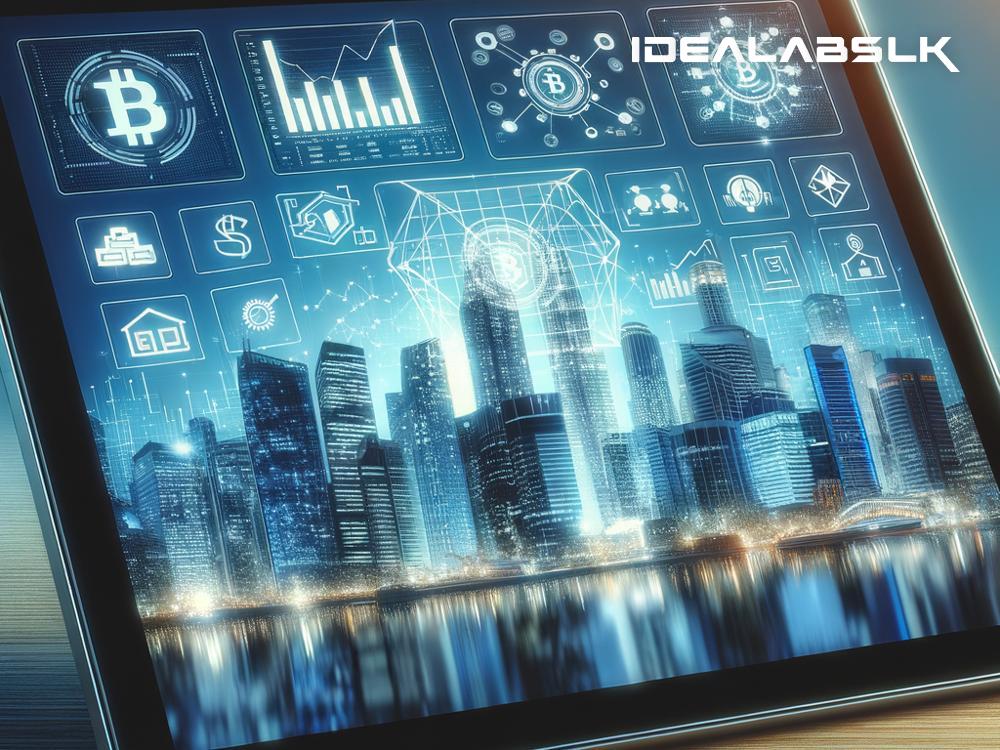Unlocking the Future: How Blockchain is Revolutionizing Real Estate
In the bustling world of real estate, the idea of tokenizing and digitizing assets through blockchain technology is swirling up a storm of excitement and curiosity. Imagine a world where buying a piece of a skyscraper is as easy as purchasing a book online, or where you can own a share of a vacation home in a far-off land with just a few clicks. This future is not just a figment of imagination; it's becoming reality, thanks to blockchain.
What is Blockchain, Anyway?
To put it simply, blockchain is like a digital ledger or notebook that's open for everyone to see. Once you write something in it, it can't be erased or altered. This makes it super trustworthy because everyone knows that the records are accurate and haven't been tampered with. Blockchain is the technology behind cryptocurrencies like Bitcoin, but its potential spans far beyond digital currencies.
Real Estate Revolutionized
In traditional real estate, dealing with properties is often long, complicated, and filled with heaps of paperwork. But what if we could simplify and speed up the process, making real estate investment more accessible to everyone? Here enters blockchain, with a cape, ready to save the day!
Tokenizing Real Estate
Tokenization is like cutting a pizza into slices, where each slice represents a share of the property. These "slices" or tokens can be bought and sold on blockchain platforms. What's groundbreaking is that it doesn't matter if you have the appetite (or budget) for a single slice or the whole pizza; tokenization allows for flexible ownership opportunities.
Benefits That Are Hard to Ignore:
-
Democratizing Investment: Traditionally, investing in lucrative properties was a playground for the wealthy. Now, with tokenization, even small investors can own a stake in prime real estate.
-
Liquidating the Illiquid: Real estate is known for being an illiquid asset—it's not easy to quickly convert it into cash. By tokenizing assets and allowing them to be traded on blockchain platforms, the process becomes much faster, akin to selling stocks.
-
Transparency and Security: The blockchain ledger provides clear records of ownership and transactions. This minimizes disputes and fraud, providing peace of mind for both buyers and sellers.
-
Breaking Barriers: International borders often complicate property investments. Blockchain makes global investment straightforward and efficient, opening doors to diverse portfolios.
Real-World Examples
While the concept might still seem like a scene from a sci-fi movie, real-world applications are popping up around the globe. Companies are creating blockchain platforms dedicated to real estate, allowing users to buy tokens that represent ownership in properties. From commercial real estate in bustling cities to vacation homes in serene locales, tokenization is making its mark.
Challenges on the Horizon
Despite its potential, blockchain in real estate is not without its hurdles. Regulatory frameworks, market adoption, and ensuring the technology's security are significant challenges that need addressing. But, as with any breakthrough, overcoming these obstacles is part of the journey towards innovation.
The Road Ahead
We're at the cusp of a major shift in how we view, invest in, and interact with real estate. Blockchain, with its promise of democratization, efficiency, and security, is paving the way for a more inclusive and accessible real estate market. As technology continues to evolve and as more stakeholders join the bandwagon, the dream of tokenizing and digitizing real estate assets is becoming a concrete reality.
Conclusion
The intersection of blockchain and real estate holds immense promise for transforming the way we think about property investment. By breaking down barriers to entry, providing transparency, and simplifying transactions, blockchain is setting the stage for a more democratic and accessible real estate market. As we move forward, it's clear that this technology has the potential not just to change the game but to create an entirely new playing field. So, whether you're a seasoned investor or a curious onlooker, the message is clear: the future of real estate is digital, and it's closer than you think.

